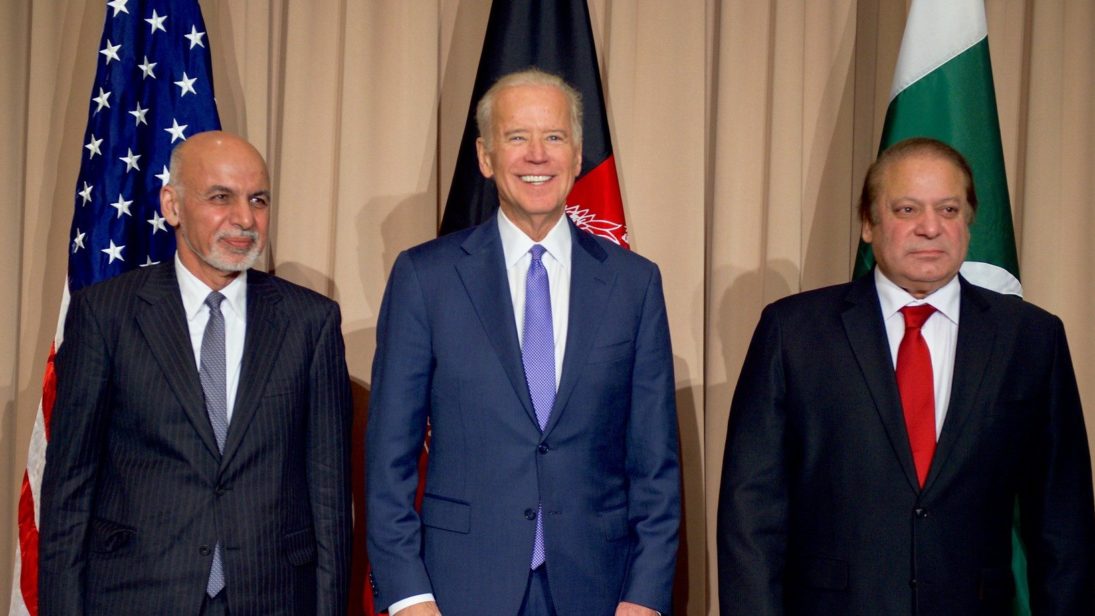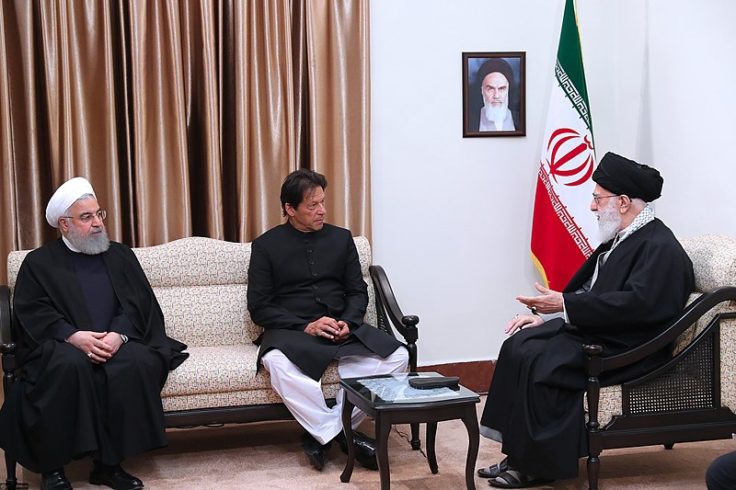
Democrats in the United States are celebrating a Biden victory, ecstatic over the ousting of Trump and the end of what they consider a long, painful chapter in U.S. politics. For the rest of the world, a change of guard has separate implications.
Several other countries, weary of U.S. exceptionalism, may have preferred Trump stay in power, as they saw his foreign policy as contributing to China emerging as a new economic epicenter. Many in Pakistan also saw him as a leader unworthy of respect and were a baffled by his public support in the United States.
President-elect Joe Biden’s approach to each of Pakistan’s four neighbors—China, India, Afghanistan, and Iran—will collectively determine the state of the U.S.-Pakistan relations.
Implications of U.S.-India relations for Pakistan
It is possible that a Vice President-elect of Indian origin in the White House will further strengthen U.S.-India ties. Yet wholly different factors contributed to U.S.-India ties reaching a zenith these past five years. In the strategic arena, we have seen the United States partner with India as part of its regional strategy to counter China’s ever-expanding economic influence. A day before the U.S. elections, the United States and India signed a key military deal, further signifying strengthening ties.
This has turned India’s non-alignment foreign policy on its head, as closer ties with the United States suggest greater allyship. Under Biden, it is likely that the United States will revert to using its role in multilateral institutions to pose as a global human rights champion. As part of this, it might indirectly call out India on its alleged human rights violations in Kashmir. This is unlikely to change the overall nature of U.S.-India ties.
As India is Pakistan’s oldest rival, a close bond between the United States and India is less than desirable for Pakistan, which has been engaged in strategic communication to counter India’s narrative on Pakistan and Kashmir. This will only make Pakistan’s task more difficult, especially with multilateral organizations such as the IMF, the support of which it desperately needs.
Pakistan and U.S.-China relations
Importantly, both India and Pakistan share a border with China to the north. The neo-cold war between China and the United States has been the global political focal point over the last few years. Pakistan is the recipient of billions in loans and aid from the Chinese under the Belt and Road Initiative (BRI), ostensibly allowing for accelerated growth, infrastructure development, and job creation—the two often refer to one another as “Iron Brothers” under their all-weather strategic partnership framework.
As India is Pakistan’s oldest rival, a close bond between the United States and India is less than desirable for Pakistan, which has been engaged in strategic communication to counter India’s narrative on Pakistan and Kashmir.
Naturally, a tougher U.S. policy on China will have ramifications for Pakistan. The brewing trade war is already having ripple effects across the world, and with China emerging through the global pandemic as the biggest economy in the world and the only one projected to show moderate growth, the United States will be keen to stem this flow. The U.S.-India partnership makes more sense in this context, as a stronger, more economically sound India will offset the global shadow cast by Chinese hegemony.
Pakistan’s role in U.S.-Afghanistan negotiations
Biden will be the fourth U.S. president to face the 19-year-old—some argue 41-year-old—Afghan crisis. The removal of U.S. troops from Afghanistan has been on the cards since the start of the war. While their presence has gradually reduced, and the focus has shifted from national security to strategic asset protection and safeguarding, roughly 4,500 U.S. troops still remain in the country.
The February U.S. Taliban peace deal paved the way for the final troop removal, especially in the presence of a potential deal through Intra-Afghan Negotiations (IAN). Without an IAN deal, a U.S. troop pullout will result in a power vacuum. It is possible that in the last few days of his presidency, Trump will try to deliver on his key campaign promise of removing the troops.
It is unlikely that Biden would act differently, having expressed his views to end “forever wars” (he was also a noted war skeptic as part of the Obama administration). As it stands, the troop presence is expected to be nearly halved by January 2021.

Afghanistan plunging into chaos is less than ideal for Pakistan, which enjoyed closer ties with the United States in the last two years of the Trump presidency since it helped bring the Taliban to the table for the U.S.-Taliban talks. Pakistan was termed a key actor in stabilizing the situation in Afghanistan under Obama, which will continue in all likelihood under Biden. Pakistan is keen to see reconciliation in Afghanistan, a promise reiterated by Prime Minister Imran Khan’s maiden trip to Kabul on November 19, as Pakistan already faces a hostile neighbor along its eastern border
The bigger problem is India’s role in the Afghan peace process, which was previously marginal at best. However, Indian External Affairs Minister Subrahmanyam Jaishankar was present at the opening ceremony of the peace talks in September, indicating an expanding circle of influence. Pakistan considers this unfavorable. The Pakistan-U.S. relationship is complex enough under the China equation, but should Biden want India to play a bigger role in Afghanistan, it will ring alarm bells in Pakistan’s upper echelons of power.
Afghanistan plunging into chaos is less than ideal for Pakistan, which enjoyed closer ties with the United States in the last two years of the Trump presidency since it helped bring the Taliban to the table for the U.S.-Taliban talks.
If the United States’ focus on the western border diminishes, its only interest in the region would be countering China and elevating India, which will be an undesirable outcome for Pakistan. Pakistan would rather that the U.S. troop presence be responsibly maintained in Afghanistan until the negotiations are successful and a power-sharing formula between Kabul and the Taliban is enacted.
Pakistan and U.S.-Iran tensions
Pakistan’s western neighbor Iran also presents complications for the United States. The American stance on Iran is not monolithic, as we have seen under the Obama and Trump leadership. Biden will likely want to revert to Obama’s policy on Iran, but Trump could complicate matters in the last few days of his presidency. On November 16, Trump asked to look into the possibility of strategic strikes on Iran to deter its alleged nuclear program, thereby jeopardizing reconciliation under Biden.
Pakistan and Iran share a complicated yet amicable history—divergences in recent years have primarily been rooted in security concerns. An armed conflict between the United States and another one of Pakistan’s neighbors is against its interests. Pakistan would be keen to play a part in avoiding such an outcome.
Conclusion
Pakistan has to patiently wait and see what Biden has in store for its neighbors, as the new administration’s stance will not be monumentally different towards Pakistan. Previously, in Pakistani strategic thinking, the United States has oscillated between being an “important strategic partner” and a “terror sponsor,” depending on the situation, administration, perceived utility, year, and geopolitical considerations.
Pakistan needs to play a demonstrably positive role in Afghanistan to shed decades of vitriol, ensure security in the region, focus on economic growth, and avoid direct commentary on the U.S.-China trade war. Efforts should also be made to thaw relations with India to move towards regional economic connectivity.
In the short term, little is likely to change for Pakistan, but peace (or lack thereof) in Afghanistan and a dramatic improvement in U.S.-India relations will determine its course of action in the long term.
***
Click here to read this article in Urdu.
Image 1: U.S. Department of State via Flickr (cropped)
Image 2: Ali Khameini via Wikimedia Commons


